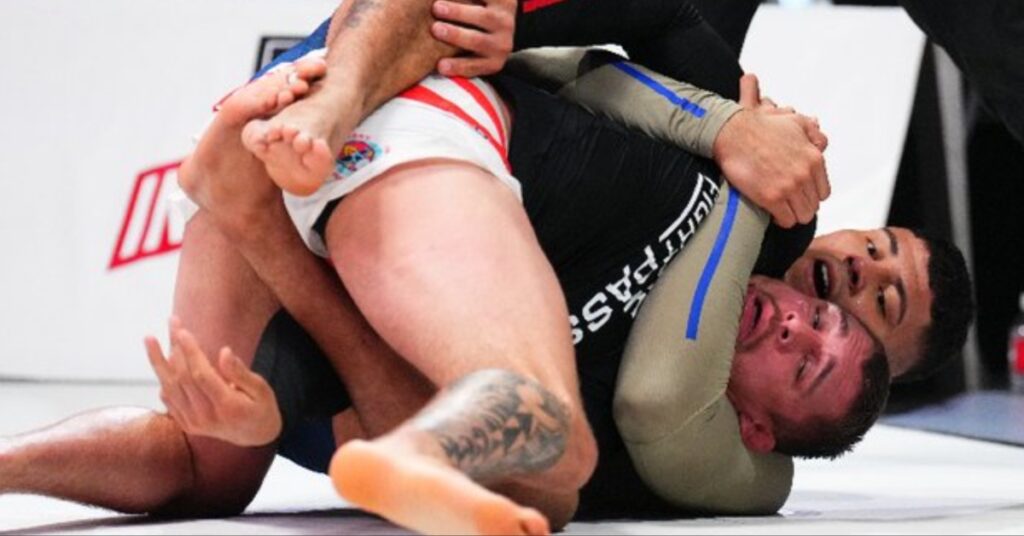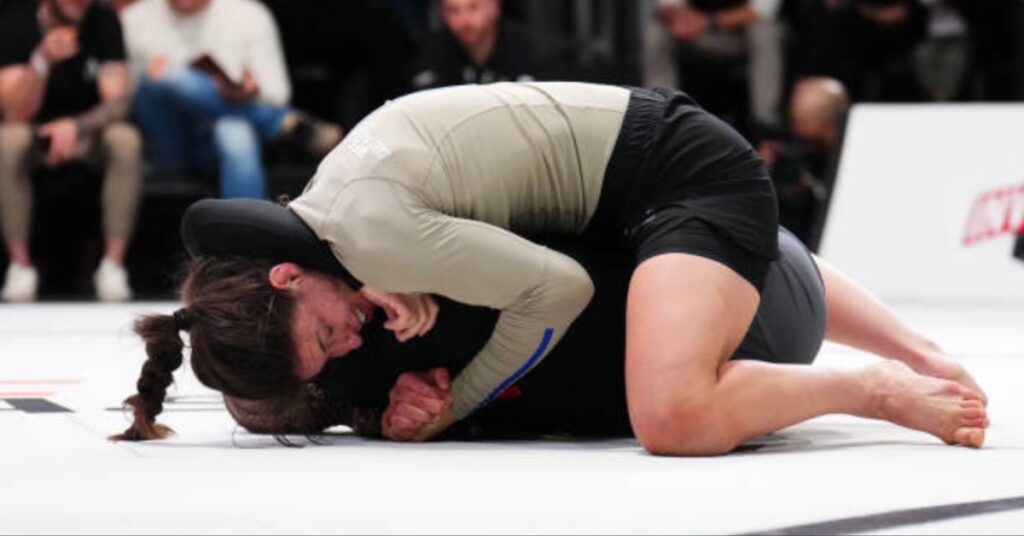Has Olympian Henry Cejudo Become the Biggest Bust in MMA History?

(Photo via The Gazette.)
Far be it from us to knock an Olympic wrestler for his lack of work ethic, but we’ve begun to notice an alarming and depressing trend in the MMA career of Henry Cejudo. Mainly, that he has more or less flaked out of his last four scheduled fights under the Legacy Fighting Championships banner, and even worse, the fights he actually did show up for in that time, he did at a significantly reduced payrate due to his inability to make weight.
So perhaps it shouldn’t come as a surprise to us that Cejudo has already withdrawn from his scheduled flyweight title fight with WEC/UFC vet Damacio Page at Legacy 31 in June, citing “personal reasons.” This comes after Cejudo forced a catchweight fight with Ryan Hollis at Legacy 24, no-showed at the Legacy 25 weigh-ins due to a last second “illness,” and again showed up heavy for his fight with Elias Garcia at Legacy 27. How he is still employed by Legacy remains as much a mystery as the circumstances that have led to his most recent drop-out.
Could it be that Cejudo has some dire life circumstance to tend to, like Rousimar Palhares and his sick mother? It’s possible, but the much more likely scenario is that Cejudo lacks either the time or the commitment to make 125 lbs, even as far out from the fight as he is, and has withdrawn in a last ditch attempt to save his rapidly descending reputation in the MMA world.
For the youngest American wrestler to win a gold medal in Olympic history, weight-cutting issues seem especially uncharacteristic. Wrestlers have long been lauded for their almost unparalleled discipline when it comes to cutting weight — just look at how Daniel Cormier was able to make the drop to light heavyweight after years of weight mismanagement — and for a guy of Cejudo’s caliber, it’s simply inexcusable.
But sadly, it appears that Cejudo’s professional career has been on a downswing ever since his comeback attempt in the 2012 Olympic Trials, where his lack of motivation was immediately noticeable to those who knew him best (via BloodyElbow):
Between the 2008 Olympics and the 2012 trials, Cejudo was off the mat for almost two and a half years. He did not engage in training for a second Olympic title until February of 2011. This is an awful long time, particularly considering that all of Henry’s strongest competition was spending that time competing for world championships.
When Henry first came back to training he announced his intent to train at the regional training center (RTC) at The University of Iowa with Coach Terry Brands.
Terry Brands is a distinguished figure in the wrestling world. Brands has won world championships, an Olympic bronze medal, and as an Olympic Training Center resident coach he was largely responsible for molding Henry Cejudo into an Olympic champion. Terry and Henry had grown close during Cejudo’s gold medal run and a number of publications describe Brands as a father figure to Henry.
When considering a athlete/coach relationship woven so tightly, it was particularly alarming to hear reports in July of 2011 that Cejudo left the Iowa RTC due to Brands disapproval over the time Henry was spending in his commercial ventures.
After leaving Iowa, Cejudo briefly trained at Ohio State’s RTC, but citing homesickness, Henry left to spend the bulk of his Olympic trials preparation residing in Arizona and away from any elite wrestling training sites. Almost all wrestlers serious about qualifying for an Olympic team reside at a regional training center or the Olympic Training Center in Colorado (or both). Cejudo spent his crunch time preparation for the trials working out at The Training Room, a strength and conditioning facility in Scottsdale run by Brian Davis, a former NFL defensive back. (when asked about Cejudo’s preparations for the trials, Davis’s response was somewhat…odd.)
Henry’s unusual choices in training arrangements, when combined with the mixed results at the only three competitive wrestling events he attended before the trials, led some in the wrestling world to doubt if he would even be in attendance in Iowa City for the Olympic trials.
It was at those Olympic Trials that Cejudo would be defeated by top-seeded Nick Simmons in the semifinals before throwing his shoes into the crowd, a symbolic gesture of his retirement from wrestling at just 25 years of age.
So what has been behind Cejudo’s fall from grace? Some say that he has become too preoccupied with the public persona he has built over the years, and the litany of high-profile endorsement deals, book deals, and even play deals that have followed. Others say that the neuro-linguistic programming outfit Cejudo has become involved with, Champion by Design, has all but brainwashed the kid with new-age, self-help gobbledygook.
It’s hard to tell, but one thing’s for certain: Cejudo has dropped out of yet another fight, and is well on his way to becoming perhaps the biggest bust in MMA history. And what a shame it would be for a self-described, “kid who grew up in poverty, a son of Mexican immigrants that came to the United States with a dream.” Not that success in a mid-level MMA promotion is comparable to Olympic glory, but still, it would have been nice to see what could have been.






